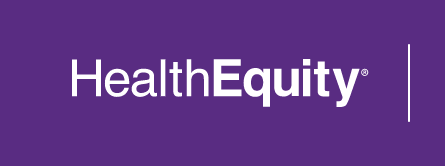When HealthEquity was founded in 2002, we made it our mission to help Americans connect health and wealth. A huge part of that effort was about educating employers, individuals, and the rest of the benefits world on Health Savings Accounts (HSAs)—at that point, still about a year from being codified into law. As we celebrate our 20th anniversary, we remain committed to that spirit of education.
20 years of HSAs
Last month, we held a webinar covering many of the lessons learned through 20 years of working in the HSA space. I was proud to present alongside HealthEquity Founder, Steve Neeleman, discussing basic HSA rules, future trends, and important uses for HSAs, including retirement.
More than 600 people attended the webinar, and our audience asked great questions about HSAs and other consumer-directed benefits (CDBs). To help you take your HSA use to the next level—and to mark HSA Awareness Day on October 15—I’ll answer 10 of the most-frequently asked questions from the webinar.
I hope these answers give you the information and insight you need. For even more great HSA content, check out the 2022 edition of HSA Guidebook by Steve Neeleman and explore more resources like how to set up your HSA and busting HSA myths.
1. What are the HSA contribution limits for 2023?
The Internal Revenue Service (IRS) has established the HSA contribution limits for 2023:
• Individual coverage: $3,850
• Family coverage: $7,750
• Catch-up contributions (age 55+): Additional $1,000
If a married couple will both be 55 or older, both spouses can make catch-up contributions totaling $2,000 collectively. Each spouse must have an individual HSA to make their individual catch-up contribution. If one spouse has a family HSA plan, then only the individual spouse who is 55+ and is the owner of the account can make the $1,000 catch-up contribution.
2. What are the HSA qualifications?
The IRS has eligibility requirements determining who can open and contribute to an HSA. You may be eligible to contribute to an HSA if:
• You have a high-deductible health plan (HDHP) with an annual deductible of at least $1,500 for individual coverage and $3,000 for family coverage
• Your high-deductible health plan out-of-pocket limits do not exceed $7,500 for individual coverage or $15,000 for family coverage
• You are not covered by Medicare
• You are not covered by any other impermissible coverage such as a spouse’s health Flexible Spending Account (FSA) or a Health Reimbursement Arrangement (HRA) provided by your employer
• You cannot be claimed as a dependent on another person’s tax return
3. Where do I find HSA qualified medical expenses?
Find HSA qualified medical expenses with this HealthEquity tool. It’s an easy way to discover coverage of medical expenses. Plus, you can find details on health benefits coverage and whether letters of medical necessity are needed.
4. How does HSA spending and contributions work with regards to retirement?
Your HSA funds can be used to pay for your qualified medical expenses in retirement. Your HSA distributions for qualified medical expenses are tax-free at any time.
HSA funds can also be used to pay for Medicare Part B, Part D, and Medicare Advantage premiums, if you are 65 or older.
An HSA does not require the account holder to begin distributing funds at a certain age. If you spend HSA money on non-qualified medical expenses after 65, you will need to pay income tax on those funds. If you spend the HSA money on anything other than qualified medical expenses before you are 65, you will need to pay income tax on those funds as well as a potential 20% tax penalty. After age 65, if you distribute funds for any purpose other than qualified medical expenses, you will be subject to income taxes. Funds distributed for qualified medical expenses will remain tax-free.
5. How can I contribute to my HSA if I’m eligible for Medicare but still working and covered by an HSA-qualified health plan?
If you delay your enrollment in Medicare, you can continue to make contributions past the age of 65, as long as you are still covered by an HSA-qualified HDHP. In addition, you can continue to make $1,000 yearly catch-up contributions starting at age 55.
Please note: If you decide to delay enrolling in Medicare, make sure to stop contributing to your HSA at least six months before you plan to enroll in Medicare. The reason is that when you enroll in Medicare Part A, you may receive up to six months of retroactive coverage, not going back farther than your initial month of eligibility. If you do not stop HSA contributions at least six months before Medicare enrollment, you may incur a tax penalty. Consult a tax professional for counseling about Medicare and HSAs.
6. How does an HSA work with Medicare?
HSA funds can be used to pay for qualified medical expenses and can also be used to pay for Medicare Part A, Part B, Part C (Medicare Advantage), and Part D premiums, if you are 65 or older.
Please note: If you’re enrolled in Medicare, you can no longer make contributions to an HSA. You must stop contributing to your HSA at least six months before you enroll in Medicare.
7. Can you have an HSA if you don’t have medical insurance?
You can only open and contribute to an HSA if you have a qualifying high-deductible health plan. However, you retain access to your HSA and can continue using HSA funds without medical insurance.
8. Who can I spend my HSA funds on?
You can use your HSA to pay qualified medical expenses for you, your spouse, and your tax dependents, as long as their expenses are not otherwise reimbursed via any other plan.
9. How do I invest my HSA funds?
Unlike other account types, an HSA lets you invest money and potentially build the ultimate retirement nest egg. Your plan may include a minimum threshold to start investing. When your HSA cash balance exceeds that threshold, you can purchase investments with any funds over the threshold amount. Visit the Investments section of your HealthEquity online account to confirm your plan’s threshold or contact member services for assistance.1
10. What are the benefits of FSA or HRA vs. HSA?
Health Savings Accounts (HSAs), Healthcare Flexible Spending Accounts (FSAs), and Health Reimbursement Arrangements (HRAs) each let members use tax-advantaged dollars to pay for qualified medical expenses. But there are some important differences to keep in mind.
HSAs are owned by the individual and facilitate saving and spending through retirement, while HRAs and FSAs are owned by the employer and funds expire at a certain point. HSAs and FSAs both take contributions from both the employer and the individual, while HRAs are funded solely by the employer.
Check out HSA vs. FSA vs. HRA: Healthcare Account Comparison for more information.
Stay ahead of the curve on HSAs
Build on the HSA information you’ve learned here with even more content from HealthEquity. In addition to the large catalog of benefits content at Remark Blog, we hold frequent webinars like the one discussed earlier.
Join us for a discussion on FSAs on October 18, 2022 and a Spanish language presentation on HSAs on October 20, 2022. If you missed a webinar, that’s ok! You can access previous sessions for HR professionals and members on demand. For webinar recordings just for members, check out our recurring webinars so you can learn at your convenience.
1Investments are subject to risk, including the possible loss of the principal invested, and are not FDIC or NCUA insured, or guaranteed by HealthEquity, Inc. Investing through the HealthEquity investment platform is subject to the terms and conditions of the Health Savings Account Custodial Agreement and any applicable investment supplement. Investing may not be suitable for everyone and before making any investments, review the fund’s prospectus.
HealthEquity does not provide legal, tax or financial advice. Always consult a professional when making life-changing decisions.



